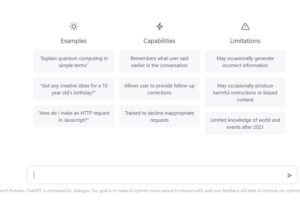Limits in Writing
When you write, word count is an important metric to consider. It ensures that you are writing concisely and within what’s expected for your genre or category. It also helps you stay on track and avoid going overboard with your content. Ultimately, adhering to a specific word limit shows that you can prioritize what’s most important in your writing.
For example, if your college essay asks for 500 words or less, you should aim to write no more than that. Otherwise, it will look like you didn’t take the time to write a quality essay. In addition, if you go over the word limit, you risk rambling or including too many unrelated details. If your word count is high, it might be helpful to consult with a teacher or tutor to see if there are ways you can tighten up the content without losing your point.
In legal writing, there are also often strict word and page limits. If you go over the limit, it can be considered a breach of court rules and may result in sanctions or even a dismissal. For example, federal appellate courts have a 13,000-word limit for opening briefs on the merits, while state and local courts may set their own limits for filings.
In medical writing, there isn’t necessarily a hard and fast rule for word counts. However, it is generally accepted that your letter of motivation should be no longer than one page. A short letter of motivation can be more effective than an overly long one because it is easier for assessors to read and understand your content. In addition, a short letter of motivation can be more compelling to a reader and demonstrate your commitment to the profession. For these reasons, it is important to keep in mind the word limit when you are writing homework market.com your letter of motivation.

Word Limits in Writing
One of the main advantages of direct communication between clients and writers is the ability to convey nuanced details, preferences, and specific requirements more effectively. This direct interaction enables clients to articulate their vision, voice concerns, and provide clarifications that might be challenging to express through written instructions alone. In turn, writers can seek clarification on ambiguous points, ask relevant questions, and ensure they fully understand the client’s expectations.
Embarking on a new project is an exciting endeavor, but it requires a solid foundation of information to ensure a smooth and successful outcome. Whether you’re working with a freelancer, a creative agency, or a specialized service, providing the right details from the outset is crucial. The question often arises: “What information do you need from me to start a project?”
At the heart of any successful project is a clear understanding of its objectives, scope, and specific requirements. To kickstart the collaboration effectively, your project partner will likely need comprehensive information in several key areas. Clearly outline the purpose and goals of your project. What do you aim to achieve, and what is the desired outcome? Providing a concise yet detailed overview sets the stage for a shared understanding of the project’s direction. Define your target audience. Understanding the demographics, interests, and needs of the intended audience helps tailor the project to resonate with the right people, whether it’s a marketing campaign, a website, or a creative piece.